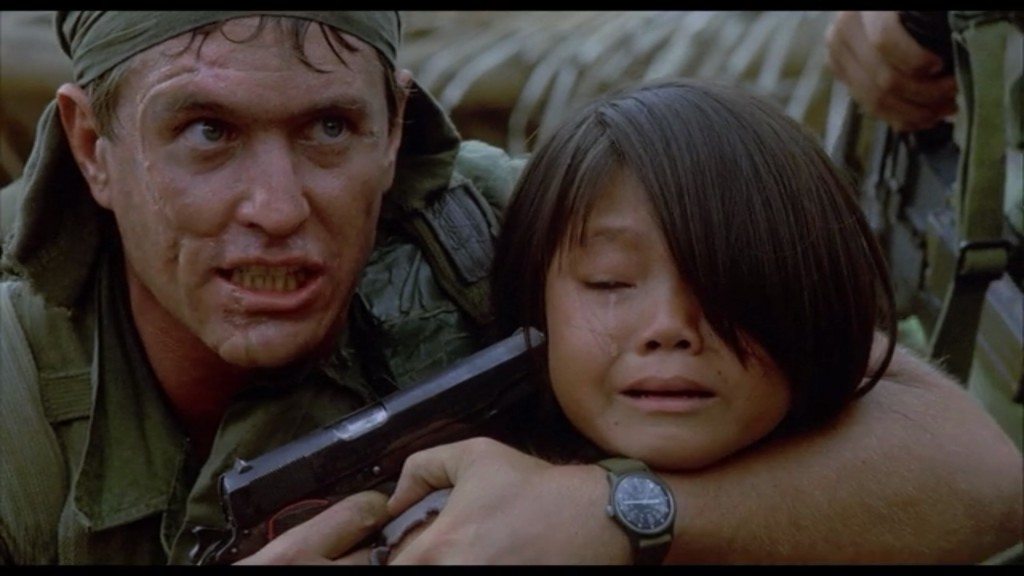For most of the year, 1986, it appeared Woody Allen would land in the Oscar circle once again for his lovely film Hannah and Her Sisters (1986). By mid-December it had won some of the major awards including the LA Film Critics Award for Best Picture, and the New York Film Critics for Best Film and Director. Actress Dianne Weist had swept the supporting actress category for her performance as Holly in the film, and Allen was himself winning awards for directing and screenplay.
The film had some competition throughout the year. A Room With a View (1986) was a critics darling from the beloved Merchant-Ivory team, James Cameron’s Aliens (1986) had kicked ass through the summer and earned strong reviews, and David Lynch gave us the mesmerizing and haunting Bluer Velvet (1986). Rob Reiners lovely Stand By Me (1986) was a possible contender, and though no one saw the film At Close Range (1986) had impressed critics.
The Cannes Film Festival hit The Mission (1986) was expêcted to be an Oscar contender, though no one believed it was better than Hannah and Her Sisters (1986). It seemed no one film could knock the frontrunner off its perch.
Oliver Stone had won an Oscar for adapting the screenplay Midnight Express (1978) and wrote Scarface (1983). He had directed a couple of films but nothing serious, but he had written a film about his experiences in Vietnam that he had tried to get produced in Hollywood. Twice decorated with the Purple Heart, Stone was the real deal in terms of having had experience during the war, unlike MiIchael Cimino who had lied. No one wanted to make his film, but he had made a low budget picture for Hemdale called Salvador (1986) which had come in on budget and made some money along with glowing reviews. James Woods was nominated for an Oscar as Best Actor for his riveting performance in the film. Because the film had made money because Stone had been responsible, the small British company backed him on Platoon (1986), giving the director six million dollars to go off and make his film. Incredibly they left him alone when he made it, allowed to cast virtual unknowns including Willem Dafoe, Tom Berenger, Forest Whitaker, Johnny Depp, Kevin Dillon, and on the cusp of stardom Charlie Sheen whose father, Martin Sheen, had been the lead in the greatest film made about Vietnam, Apocalypse Now (1979).
Screenings of Platoon (1986) began that fall, and by December the film was on the cover of Time Magazine, critics were talking great things, it was incredible considering the subject matter, making money, and suddenly Hannah and Her Sisters (1986) had some serious competition.
It began with the Golden Globes, where the film won Best Picture (Drama), Supporting Actor (Berenger) and Director, and a few weeks later it was nominated for a whopping eight Academy Awards tying A Room with a View (1986) with the most nominations. Shortly before the Oscars, Stone won the coveted DGA Award all but assuring him the Oscar. Director Oliver Stone was interviewed by everyone, and could tell the truth about his film because he had lived it. He hoped that by seeing the film audiences were beginning to understand the plight of the Vietnam veteran, and maybe gain a greater understanding of the war they fought over there, as well as how profoundly it impacted them.
Platoon (1986) would triumph Oscar night, the little film came from nowhere and won four Oscars including Best Picture and Best Director for Stone, who overnight became one of the most important new directors of the eighties. The film would also win awards for Best film editing and Best sound, while the highly touted Hannah and Her Sisters (1986) took home three awards, for Allen, screenplay and both supporting actor and actress.
The acceptance of Platoon (1986) would bring an end to the comic book mentality of Vietnam that had come to the screen in the years after Apocalypse Now (1979), with Sylvester Stallone or Jean Claude Van Damme going back to Vietnam to win the war in films such as First Blood (1982), Rambo – First Blood Part II (1985) and the dreadful Missing in Action franchise. IN the immediate years after Platoon (1986), films such as Casualties of War (1989), Full Metal Jacket (1987) and In Country (1987) would emerge, though none enjoyed the success of Stone’s film. The director would re-visit Vietnam again three years later with Born on the Fourth of July (1989) based on the memoir of Ron Kovic who went off a patriot anxious to fight and returned paralyzed from the waist down, an activist, angry at what his country had done to him. Stone had worked on the screenplay for the film in the seventies when Al Pacino was set to star, but this time he would direct and write the film, and Tom Cruise would star. Once again the film was a sensation and again was nominated for eight Academy Awards, though it would win just two, Stones second as Best Director and the award for editing.
Stone would enjoy great success as a filmmaker for many years after, directing the superb JFK (1991) which would earn him another nomination for Best Director; Natural Born Killers (1994) an explosive masterpiece of a film; Nixon (1995) possibly his greatest film, based on the life of the disgraced President, and later Alexander (2004), a noble failure about the life of Alexander the Great.

